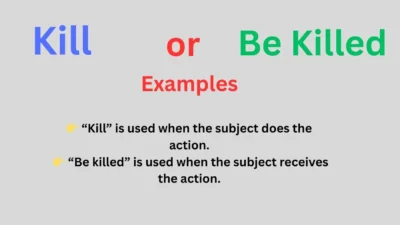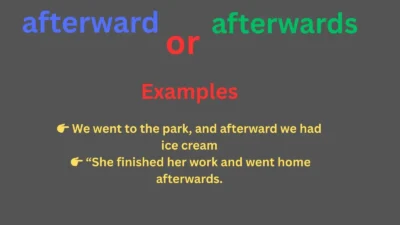Have you ever paused mid-sentence wondering—is it realize or realise? You’re not alone.
I’ve seen even native speakers struggle with this simple yet tricky pair. The confusion often comes down to where you live and who you’re writing for.
Don’t worry—I’ll make it crystal clear in just a few minutes. By the end of this article, you’ll know exactly which spelling fits your audience and why.
Let’s dive in! 🌍
Realize or Realise – Quick Answer ✏️
Both “realize” and “realise” mean to become aware of something or to make something real.
The difference is regional, not grammatical.
- Realize → American English (used in the U.S. and Canada)
- Realise → British English (used in the U.K., Australia, and other Commonwealth countries)
✅ Example:
- US: I just realized I left my phone at home.
- UK: I just realised I left my phone at home.
So, both are correct—it just depends on your audience!
The Origin of “Realize” or “Realise” 📜
The word traces back to the Latin “realis” (meaning actual or real) and the French “réaliser”, which means “to make real.”
When English adopted the term in the 17th century, it originally appeared as realize. Later, British English began adopting the -ise ending to align with other verbs like organise and recognise.
The -ize ending, however, is older and historically preferred by scholars—even in early British dictionaries like Oxford English.
Over time, the -ise form became standard in the U.K., while Americans kept the original -ize version.
British English vs American English Spelling 🇬🇧🇺🇸
The key difference lies in the spelling convention, not pronunciation or meaning.
| Region | Preferred Spelling | Example Sentence |
|---|---|---|
| United States | Realize | I realize how lucky I am. |
| United Kingdom | Realise | I realise how lucky I am. |
| Canada | Realize | Canadians realize the importance of education. |
| Australia | Realise | Australians realise summer starts in December. |
In short, use “realize” for American writing and “realise” for British or Commonwealth readers.
Which Spelling Should You Use? 🎯
It depends on your audience and content goal.
🌎 Global or digital content: Use realize. It’s more widely recognized internationally.
🇺🇸 U.S. audience: Always use realize.
🇬🇧 U.K. or Commonwealth readers: Choose realise to match local norms.
If you’re writing academic work, check your institution’s style guide. APA prefers realize, while some British universities prefer realise.
Common Mistakes with “Realize” or “Realise” ⚠️
- Mixing styles: Using realize in one sentence and realise in another. Stick to one style.
- Assuming one is wrong: Both are correct—just regionally different.
- Overcorrecting: Using realise because it “looks British,” even in U.S. writing.
- Autocorrect confusion: Devices often default to U.S. English, changing realise to realize.
👉 Tip: Set your writing software to your preferred English region to avoid these mix-ups.
“Realize” or “Realise” in Everyday Examples 💬
Here’s how you’ll spot both spellings in daily life.
Emails:
- I didn’t realize you needed that report today.
- I didn’t realise you needed that report today.
News headlines:
- Americans realize the power of community action.
- Britons realise the need for sustainable transport.
Social media:
- Just realized my coffee’s cold again!
- Just realised my coffee’s cold again!
Formal writing:
- We must realize our potential as a team.
- We must realise our potential as a team.
Both spellings communicate the same message—just in different linguistic accents!
“Realize” or “Realise” – Google Trends & Usage Data 📊
According to Google Trends, realize dominates globally—especially in the U.S., Canada, and Asia.
Meanwhile, realise is stronger in the U.K., Australia, New Zealand, and South Africa.
| Country | Most Common Form | Popularity (%) |
|---|---|---|
| United States | Realize | 95% |
| United Kingdom | Realise | 88% |
| Canada | Realize | 78% |
| Australia | Realise | 85% |
| India | Realize | 60% |
The trend shows that “realize” is more globally visible online, making it a safer choice for international content.
FAQs About “Realize” or “Realise”
1. Is “realize” or “realise” correct in the U.K.?
Both are accepted, but realise is more common in British English.
2. Do American dictionaries list “realise”?
Yes, but they mark it as a British variant.
3. Which form should I use in academic writing?
Follow your style guide—APA, MLA, and Chicago prefer realize.
4. Why do British words end in –ise?
It follows French spelling influence and became standard over time.
5. Can I use both in one document?
No, pick one version for consistency.
6. Is “realize” more modern?
Not exactly—it’s actually the original form from early English.
7. Which one does Google prefer?
Realize is searched far more often worldwide.
Conclusion 🌟
So, is it realize or realise? The truth is—they’re both right.
The difference lies in where your readers are. If you’re writing for a global or American audience, use realize. For British or Commonwealth readers, go with realise.
Language is flexible, and spelling should match your context—not confuse your audience.
Now that you understand the origins, trends, and rules, you’ll never hesitate again. Whether you realize or realise it, you’ve just mastered a global writing secret! ✨



